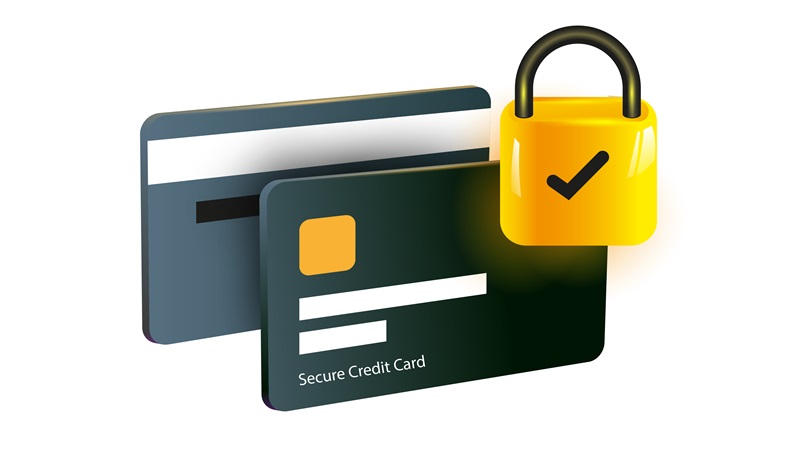How to Meet the Qualifications for a Business Credit Card: A Complete Guide

How to Meet the Qualifications for a Business Credit Card: A Complete Guide-Applying for a business credit card can seem like a daunting task, but with the right knowledge, you can navigate the qualifications with ease. Business credit cards are a valuable tool for entrepreneurs and small business owners, offering benefits like improved cash flow management, rewards, and the opportunity to build business credit. However, to secure the best card for your needs, you need to meet specific qualifications. In this complete guide, we’ll walk you through the essential qualifications for business credit cards and provide practical tips to help you get approved.
What Are the Qualifications for Business Credit Card?
Before diving into the details, it’s important to understand what business credit cards are and why they matter. These cards are designed specifically for business-related expenses, offering features such as higher credit limits, expense management tools, and rewards tailored to business needs. Whether you’re running a small business or a large enterprise, business credit cards can simplify your financial management.
To qualify for a business credit card, there are several factors lenders will consider. These include your personal credit score, the financial health of your business, and other key factors like your business’s revenue and age. Let’s take a deeper look at these qualifications.
1. Personal Credit Score
Your personal credit score is one of the most important qualifications for a business credit card. While some issuers may also look at your business credit, most will consider your personal credit score when deciding whether to approve your application. A good credit score indicates that you are financially responsible and capable of managing debt, which is crucial for any lender.
What’s a Good Credit Score for Business Credit Cards?
In general, a score of 680 or higher is ideal for securing a business credit card. However, the higher your credit score, the better your chances of qualifying for cards with lower interest rates and better rewards programs. If your score is below 680, you may still qualify, but you may face less favorable terms.
2. Business Revenue and Financial Health

Lenders also want to know that your business is financially healthy and capable of repaying the credit extended to you. This is where your business’s revenue and overall financial health come into play. Most credit card issuers require that your business generates a consistent stream of income. They may ask for tax returns, profit and loss statements, or bank statements to verify this.
What’s the Minimum Revenue Requirement?
While there is no specific minimum revenue requirement, many issuers prefer businesses that generate at least $50,000 to $100,000 in annual revenue. However, new or smaller businesses with less revenue can still apply and may be approved for lower credit limits or cards with fewer rewards. Being able to prove consistent income will increase your chances of qualifying for a business credit card.
3. Employer Identification Number (EIN)
An Employer Identification Number (EIN) is another important qualification for business credit cards. Issued by the IRS, an EIN is used to identify your business for tax purposes. While sole proprietors may sometimes use their Social Security Number (SSN), having an EIN is highly recommended, as it establishes your business as a separate legal entity from your personal finances.
If you don’t already have an EIN, applying for one is free and relatively simple. Having an EIN will not only help you meet the qualifications for a business credit card, but it will also make your business appear more professional to lenders. (Read More: The Evolution of Business Cards Online: Trends and Innovations in 2024)
4. Business Age and Stability

The age of your business can also influence your eligibility for a business credit card. Lenders tend to prefer businesses that have been operating for at least one to two years, as this demonstrates stability. New businesses and startups may still qualify, but they may need to provide additional documentation to prove their financial health.
How to Qualify as a New Business
If your business is still in its early stages, consider applying for a secured business credit card. These cards require a deposit upfront and are easier to qualify for. Once your business has been established and your financial history improves, you can apply for an unsecured business credit card with better terms.
5. Debt-to-Income Ratio
Your debt-to-income (DTI) ratio is another factor that issuers will consider when determining whether to approve your business credit card application. The DTI ratio compares your total monthly debt payments to your monthly income. A lower DTI ratio indicates that your business is in a good position to handle additional debt.
Lenders typically prefer a DTI ratio below 40%. If your ratio is higher, consider paying down existing business debt to improve your chances of approval. (Read More: Business Bank Accounts with the Best Perks for Entrepreneurs in 2024)
6. Using Your Business Credit Card Responsibly
Once you meet the qualifications for a business credit card, it’s essential to use it responsibly to maintain your credit standing. Responsible usage means paying your bills on time, keeping your credit utilization low, and monitoring your spending regularly. By doing so, you’ll build business credit, which will open doors to more favorable terms and higher credit limits in the future.
7. Choosing the Right Business Credit Card
When applying for a business credit card, it’s important to choose one that aligns with your business’s needs. Business credit cards come in many varieties, including:
- Cashback cards: Ideal for businesses that make frequent purchases in specific categories like office supplies or travel.
- Travel rewards cards: Perfect for businesses that frequently travel and want to earn points or miles.
- Low-interest cards: Best for businesses that plan to carry a balance from month to month and want to minimize interest charges. (Read More: 10 Reasons Why Business Cards Online Are Essential for Entrepreneurs)
8. Secured vs. Unsecured Business Credit Cards

For businesses with lower credit scores or limited financial histories, secured business credit cards can be an excellent option. These cards require a deposit that serves as collateral for the credit extended to you. While secured cards typically have lower credit limits and fewer benefits, they can be an effective way to build business credit.
Unsecured cards, on the other hand, don’t require a deposit and tend to offer higher credit limits and more rewards. However, they require a stronger credit history and higher qualifications.
Final Tips for Meeting Qualifications for Business Credit Cards
- Prepare your documentation: Be ready to provide financial documents like bank statements, tax returns, and profit and loss statements.
- Check your credit score: Before applying, check your personal credit score and work on improving it if necessary.
- Consider your business needs: Choose a credit card that aligns with your business expenses, whether that’s for cashback, travel rewards, or other benefits.
- Start small: If your business is new or your credit is less-than-perfect, consider applying for a secured or entry-level business credit card to start building your credit history.
Conclusion article How to Meet the Qualifications for a Business Credit Card: A Complete Guide
Meeting the qualifications for a business credit card may seem challenging at first, but with the right preparation, you can increase your chances of approval. By focusing on your personal credit score, business revenue, and stability, and ensuring your business is set up with an EIN, you’ll be on the right path. With responsible usage, a business credit card can be a powerful tool to help your business grow, improve cash flow, and earn valuable rewards.





